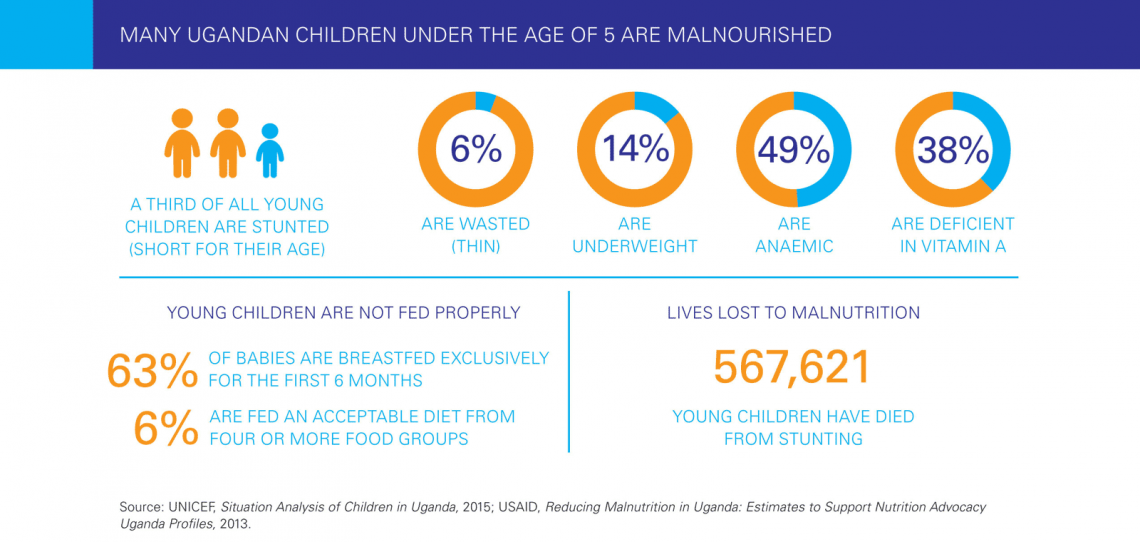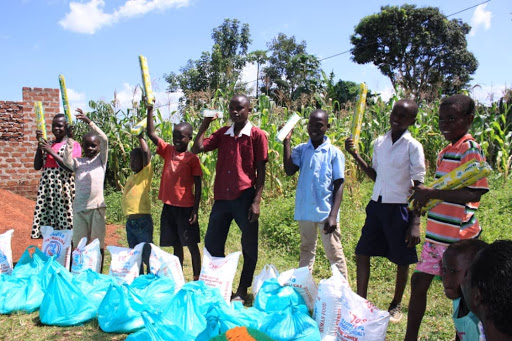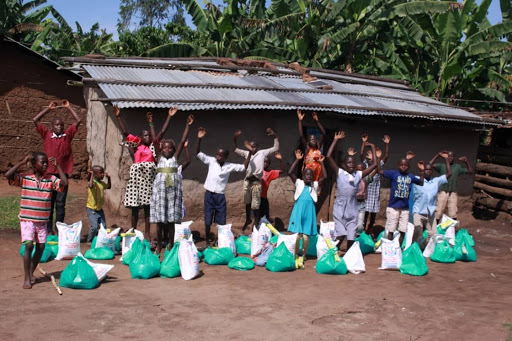
2.4 million young Ugandan children are stunted for their age.
Only 6% of Ugandan children are able to eat a well-balanced diet from multiple food groups. Thin, frail, and vitamin deficient, children often turn to soil and clay as a means to stop the emptiness in their stomachs.
According to World Food Program (WFP) Director David Beasley, the world is on the brink of a hunger pandemic. With the COVID-19 outbreak that has plagued us this past year, food insecurity only worsens. Crop production has slowed due to previous lockdown efforts, especially in Ugandan farming industries already weakened by the locust swarms from last year. Pandemic restrictions prevent mothers from visiting health centers where they get their feeding supplements, and schools are unable to provide lunches. Global aid efforts are largely reduced and families struggle to support their own.
Thousands of children have not survived, and if we do not act, the numbers will only increase.
In response to COVID-related food insecurity, Pockets of Promise (POP) began a COVID feeding project supplying posho, a traditional meal complete with maize, rice, and beans, to 20 children and their families in Uganda. While abiding by CDC recommendations of social distancing and hand washing, this monthly food supply is renewing the health of malnourished children.


